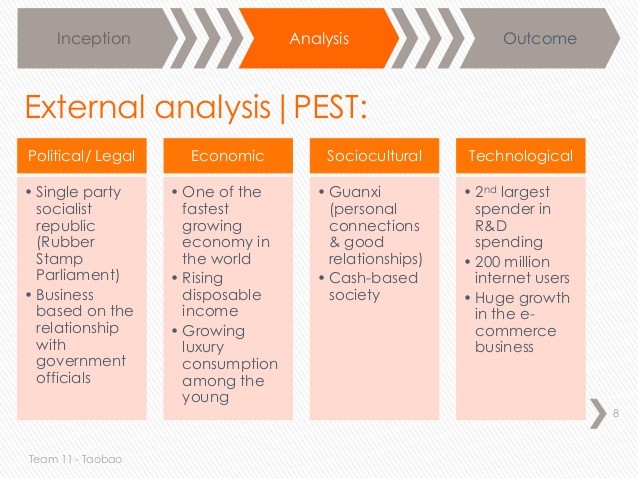Ecommerce and the global battle for Internet economics
Post on: 1 Июль, 2015 No Comment

FORTUNE Over the past 10 years, seven companies have carved out lion-sized shares of the global Internet economy. The American giants and their respective kingdoms are well-known: Google ($293 billion market cap) in search, Amazon ($125 billion) and eBay ($66 billion) in e-commerce and Facebook ($58billion) in social networking.
Less familiar are the other three, all based in China: Baidu ($33 billion), the leading Chinese search engine; Alibaba (privately held), the dominant force in e-commerce; and Tencent ($69 billion), the principal player in social networking and gaming.
If any of these Internet giants can maintain their growth rate over the next five years, it has the potential to become the worlds most valuable company. During this period, we will see intensifying head-to-head competition within the super-segments of the Internet economy. In my view, the e-commerce market will become the most important battlefield of all.
The E-Commerce Market
Some analysts view e-commerce as a maturing and well-penetrated market, pointing to Amazon’s AMZN high-profile forays into web services and video streaming and eBay’s growth rate, which has stabilized in the 15-20% range. Yet this perspective is too simple. E-commerce continues to present a gigantic, expanding pool of Internet economics across the globe.
In the U.S. e-commerce was nearly $225 billion in 2012, accounting for over 5% of total U.S. retail sales, according to the U.S. Census Bureau. The next frontier of U.S. e-commerce growth is within the “last mile” of local commerce, where 75% of all retail spending occurs fifteen miles from home, across both products and services. If successful, this “last mile” market could double or triple the U.S. e-commerce market in a new surge of opportunity and growth.
In China, e-commerce has the potential to be far larger than the U.S. market and may only be in its third or fourth inning of growth. Online retail revenue in China was $207 billion last year, representing 6% of total retail spending. The population of Internet users in China continues to grow, and the penetration of online shopping in China has not even reached half the levels found in developed countries.
This “growth on growth” characteristic of e-commerce in China is further fueled by the relative immaturity of the country’s retail infrastructure. Just as China jumped straight to wireless communications, China may skip a generation of brick-and-mortar retail build-out through aggressive e-commerce adoption. Jack Ma, the visionary founder and executive chairman of Alibaba, recently predicted that e-commerce penetration in China could grow from 6% today to 30% of overall retail spending in the next five years, implying more than five-fold growth.
E-Commerce Monetization Machine
The blessing of e-commerce is that when users enter the domains of Alibaba, Amazon, eBay EBAY. or other popular destinations, they anticipate a commercial experience and are prepared to pay for it. Search companies and social media networks do not share this advantage. They must generate revenue using indirect methods and face greater risks that ads and other monetization efforts will impair the user experience.
As the pioneer in e-commerce, Amazon relies upon a capital-intensive, vertically-integrated strategy to purchase inventory and run a massive network of warehouses and fulfillment centers. Operating as the online version of a full retail operation, Amazon recognizes completed product sales as its primary source of revenues and gross profits. Yet despite Amazons enormous growth, its e-commerce success has come at massive capital cost and thin profit margins.
In contrast, Alibaba and eBay run business models based on operating online marketplaces. These ecosystems are based on partnering, rather than competing with a vast spectrum of merchants, wholesalers, manufacturers, and logistics and delivery companies.
Alibaba, for example, has entered into a grand bargain with thousands of Chinese merchants. The merchants receive the product revenue and gross profit while Alibaba’s revenues are generated by a combination of performance-based advertising and commissions, as well as a range of important value-added services. Alibaba uniquely has chosen not to charge listing fees to better align its revenues with the success of its merchants. (Disclosure: Silver Lake is an investor in Alibaba )

For the majority of businesses seeking to sell online in China, joining the Alibaba ecosystem has been a more effective strategy than trying to compete with it. Alibaba attracts over 100 million daily unique visitors who generate more sales volume than the global sites of Amazon and eBay combined and more than half of the parcel deliveries in China. Other smaller Chinese online retailers have pursued Amazon-type models in large shopping verticals but have consumed extraordinary amounts of cash in order to grow.
Competition Among Giants
Alibaba’s model in China has interesting long-term implications for the ability of e-commerce players to encroach on paid search perhaps the greatest monetization machine ever invented. Today, the majority of users access an Alibaba site directly to search for products, effectively dis-intermediating Baidu and other search engines. E-commerce sites can provide merchants higher and more measurable returns on advertising by delivering real product sales, not just user impressions. Notably, Amazon and eBay are aggressively investing in next-generation search capabilities.
In comparison to search or social media companies, e-commerce companies collect the Holy Grail of big data sets across consumers, merchants, and transactions. This information encompasses “closed loop” data based on actual transaction histories from initial product searches to completed sales. Over time, the mining of this data will enable more intelligent recommendations to users and enhanced value-added services and tools to merchants and retailers.
In both the United States and China, the Internet giants in search Google GOOG and Baidu BIDU and social media Facebook (FB ) and Tencent nurture ambitions to leverage their leadership positions and user traffic into e-commerce initiatives. Alongside Alibaba, Amazon, and eBay, they are aggressively positioning themselves to compete in local commerce markets and are looking for new footholds overseas. Competition and disruptive trends such as mobile and cross-border trade will lead to new monetization models and hybrid business strategies.
The success of these technology powerhouses in the intensifying global e-commerce competition will, to a large degree, define the future of the global Internet economy and may possibly crown one of the Internet giants as the worlds most valuable company.
Ken Hao is a managing partner of Silver Lake, a global technology investment firm with $23 billion in assets under management and committed capital.














